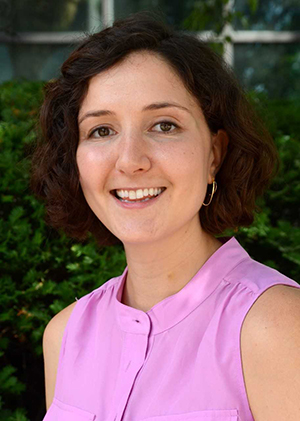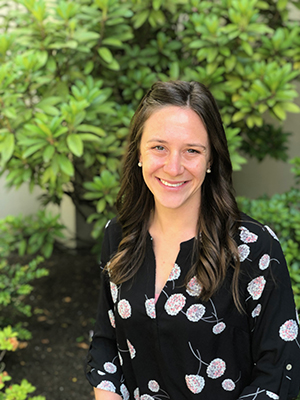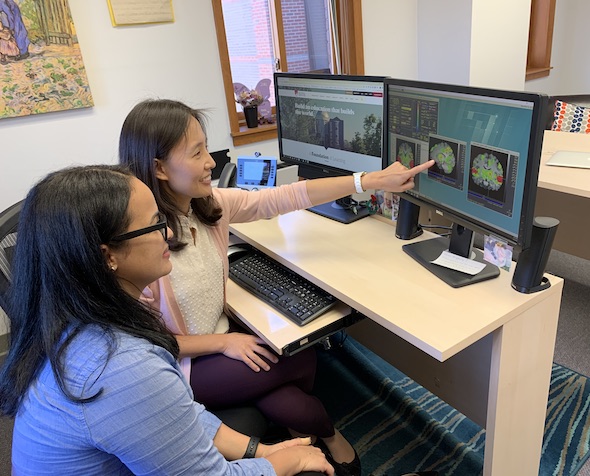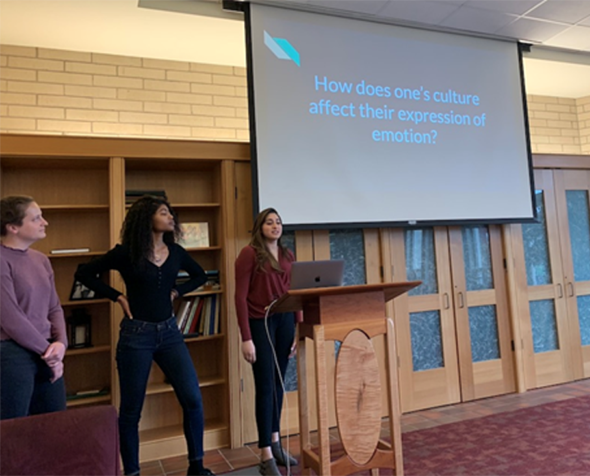New Psychology Faculty Question the Status Quo
DU’s Department of Psychology has brought on two instructors.
This fall, DU’s Department of Psychology brought on two instructors pursuing innovative research initiatives and teaching approaches in psychological science. Kathryn Fox is an assistant professor in the Clinical Child Psychology Department and directs the Fox Lab. Sarah Huff is a teaching assistant professor working in cultural psychology.
Growing up, Fox never saw herself as a researcher. It wasn’t until an abnormal psychology course in college, which sparked questions about the processes underlying mental illness, that she switched majors.
“I was skeptical, assuming that ‘doing research’ meant sitting alone in a lab and reading all day in isolation,” Fox said. But dedicated mentors in college showed her that clinical research is collaborative, exciting and fun.
“Yes, many (many!) hours are spent reading, but, no, it’s not boring or isolating. We still know so little about who, why and how people develop mental illness, and as a field we can design studies to help answer these questions.”
Huff, too, didn’t initially think she’d be a researcher: “Like many undergraduates, I started my psychology major thinking that I would be a therapist. After taking classes in cultural psychology, I became incredibly excited about the idea that your cultural background can have a profound impact on your thoughts, feelings and behaviors.
“My research has evolved over the years to focus on studying multiple types of identities and thinking about how our cultural context (broadly defined) influences how we think about our own identities and interact with one another,” Huff said.
Huff has taken these interests around the globe, working abroad in Spain, Chile and Japan as well as her home state of Colorado.
Fox and Huff both encourage their students to stay open to any new interests, experiences and opportunities they encounter during their academic careers. It’s this flexibility, they said, that led them to where they are now.
In the classroom, Fox teaches students not only to learn about psychology but to “think like psychological scientists.”
“I encourage students to ask questions, to be skeptical, and to openly express doubts or uncertainty about content rather than assume the information I present is ‘fact.’ Our understanding of psychology across domains is constantly evolving.”
Huff said, “I also love seeing students question the existing research or knowledge and pushing back with their own research questions. One of my favorite things about teaching psychology is seeing students’ excitement when they learn about a psychological finding that really resonates with them or questions the way that they see the world.”
Questioning the status quo is what drives Fox and Huff’s work both inside and outside the classroom.
“The primary goal of my research,” said Fox, “is to help reduce the number of people who die by suicide and hurt themselves each year. I recognize the ambition of this goal, but want to dedicate my career to asking and (through collaboration with others) answering questions that will, ideally, alleviate suffering.”
Fox designs and conducts experimental studies to better understand pain perception. She’s interested in the development of suicidal thoughts and behaviors over time, and whether and how these behaviors are related to certain kinds of thinking styles, abnormal eating behaviors and other symptoms of mental illness.
“To answer these kinds of questions, I run long-term studies on teenagers recruited using social media and related websites. Lately, I’m particularly interested in using these methods to study teens who identify as LGBTQIA,” Fox said.
Fox is also harnessing the power of technology and media “in creating and testing treatments that can be accessed through phones and the web.”
Huff’s cultural psychology perspective guides her research on “how individuals manage their multiple identities, with an emphasis on interpersonal/intergroup tolerance, negotiations and adaptive cognitive control. In one paper,” explained Huff, “we found that individuals who perceive their multiple selves as more integrated (i.e., ‘I am a blend of all my different selves’) are more tolerant of others with opposing opinions (Huff, Lee & Hong, 2017).”
Other research of hers focuses on measuring how bicultural-identity integration influences intergroup tolerance. Huff uses self-report, behavioral, cross-cultural and neuroscience methods in this work. Her future research on cultural adaptation will measure how historical migration and current diversity influence adaptation in contexts like work or study abroad.
Interested in working with either of these professors? Huff is teaching a Cultural Psychology and Research Methods course in winter 2020, as well as Personality and Organizational Psychology in spring. In her classes, she focuses on incorporating diverse perspectives and grounding the work in cultural psychology.
Fox will be teaching Depression (PSYC 3019) in winter 2020, and she’s looking to grow her lab with undergraduate volunteers and students interested in Research Apprenticeship (PSYC 2112). Students who work in the Fox Lab will have the opportunity to get involved with all aspects of the research process, including helping to set up in-person and online research studies, recruiting participants and working as an experimenter for studies including teens and their parent/guardians. Fox’s courses take a two-prong approach, first teaching students what’s known about a topic to-date, and then teaching students to critically evaluate research on that topic.








